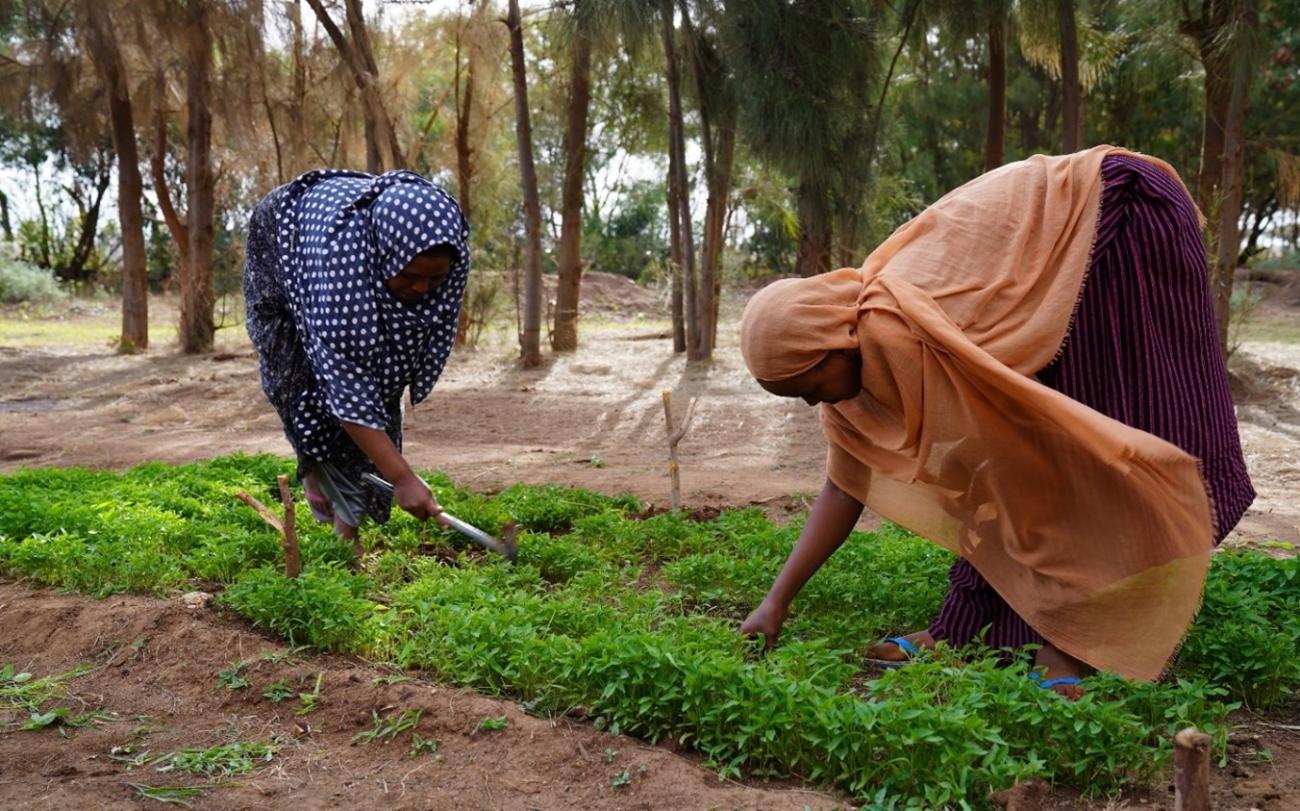Implementing scalable Ecosystem-based Disaster Risk Reduction models in Ethiopia

Healthy and resilient ecosystems are fundamental for our societal well-being.
The need to support the management, protection, and restoration of ecosystems is pivotal for developing and implementing Ecosystem-based Disaster Risk Reduction (Eco-DRR) measures. Given the growing interest in Eco-DRR, the question arises on how do we upscale Eco-DRR measures to achieve greater impact nationally and globally?
Since 2019, the United Nations Environment Programme (UNEP) has developed and implemented scalable Eco-DRR models in collaboration with Partners for Resilience (PfR), working alongside various governments and communities to strengthen their capacity and shape Eco-DRR policy interventions. The joint project strived to scale-up Eco-DRR models and promote its large-scale implementation in 5 key countries: Ethiopia, Haiti, India, Indonesia, and Uganda.
Ethiopia is known to be particularly vulnerable to droughts, floods, and food insecurity. To help address this, our project aimed at enhancing the resilience of communities to disasters and climate risks through the piloting and scaling up of Eco-DRR activities. Our project
in Ethiopia focused specifically on ecosystem restoration and protection in the Fafan and Liben Zones of the Somali Region. An estimated 44,000 vulnerable people in approximately 80 communities were reached by the end of the project. Our project further highlighted the scaling up of Integrated Risk Management and Inclusive Risk Governance by supporting participatory ecosystem and community disaster risk assessments and action planning. In addition to the implementation of Eco-DRR measures, scaling up of Eco-DRR action, and promotion of citizen-based monitoring of disaster and climate resilient policies and practices.
A model for upscaling community resilience was developed through three core components of Eco-DRR: Ecosystem Restoration/Protection, Disaster Risk Reduction, and Climate Smart Livelihoods. Each Eco-DRR model comes in different shapes and sizes depending on the regional, national, and local context. In Ethiopia, there was a greater emphasis on Climate Smart Livelihoods and Ecosystem Restoration/Protection by demonstrating Eco-DRR rangeland restoration, water management, and embedding Eco-DRR measures within the Productive Safety Net Programme (PSNP). The project further focuses on addressing multiple risks through innovative water and soil management, rangelands restoration and protection, community participation, stakeholder capacity building, and embedding Eco-DRR in institutional mechanisms such as the PSNP. Through our project, 18 Community-based Organisations were trained on Eco-DRR, and 2,520 community members were sensitized on ecosystem and rangeland restoration and management for addressing overgrazing and deforestation, among other capacity building activities. Furthermore, this resulted in 15,847 beneficiaries reached through our project; out of which 45% were women.
Our work in Ethiopia lays the foundation for demonstrating the need for large-scale implementation of Eco-DRR, especially for advancing the implementation of the Sendai Framework for Disaster Risk Reduction 2015-2030, Kunming-Montreal Global Biodiversity Framework, and the Sustainable Development Agenda.

